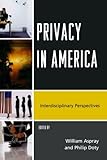Four useful analytic categories from science and technology studies
By Kristopher A. Nelson
in
February 2016
300 words / 2 min.
Tweet
Share
Science and technology studies (STS) is an interdisciplinary collection of analytic approaches. In his analysis of the Digital Millennium Copyright Act, Philip Doty pulls out four concepts from STS that he believes are particularly useful

Please note that this post is from 2016. Evaluate with care and in light of later events.

Science and technology studies (STS) is an interdisciplinary collection of analytic approaches. It is neither unitary nor fixed in meaning, but generally includes works from traditional disciplines like the history and philosophy of science, anthropology, sociology, communications, and similar critical disciplines that focus on analyzing and understanding science and technology in context.
In his analysis of the Digital Millennium Copyright Act, Philip Doty pulls out four concepts from STS that he believes are particularly useful:
Sociotechnical
Technologies are always sociotechnical. Doty draws on the concept developed by Thomas Hughes to explain that “technologies must be understood as both technical and social” (221). He notes that one ought not to privilege either the social nor the technical alone when “discussing the genesis of technologies, … their implementation and deployment, or … their use” (221).
Drawing on David Nye, Doty explains that technologies emerge from more than just “internal technical imperatives” (i.e., the fusion bomb as an inevitable next step after the development of fission). Instead, quoting Nye, technologies are “shaped by social conditions, proves, traditions, popular attitudes, interest groups, class differences, and government policy” (221). (But note that they are shaped not determined by these social factors.)
Ensembles
Similarly, technologies are “necessarily ensembles,” irreducible to discrete combinations of either only technical things or only social factors.
Agency
Technologies result from decisions made by people exercising agency through particular decisions, rather than inevitable outcomes of prior technologies or artifacts;
Historicity
And, finally, the historicity of technologies — that is, that technological development operates in a particular historical context and neither inevitably determines, nor is inevitably determined, by history.
All four of these provide useful analytic categories for an analysis of techno-scientific developments.